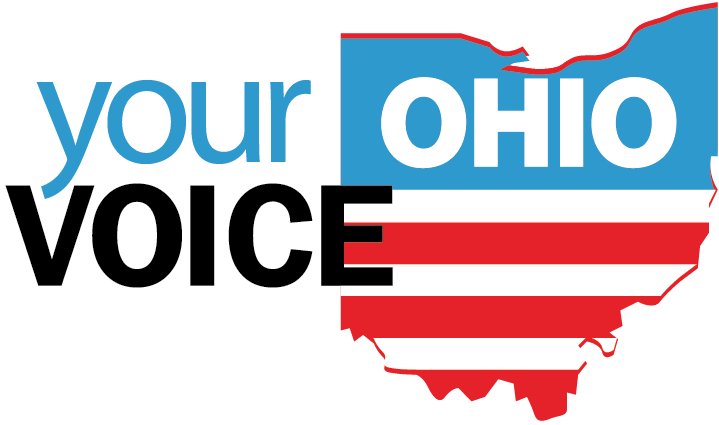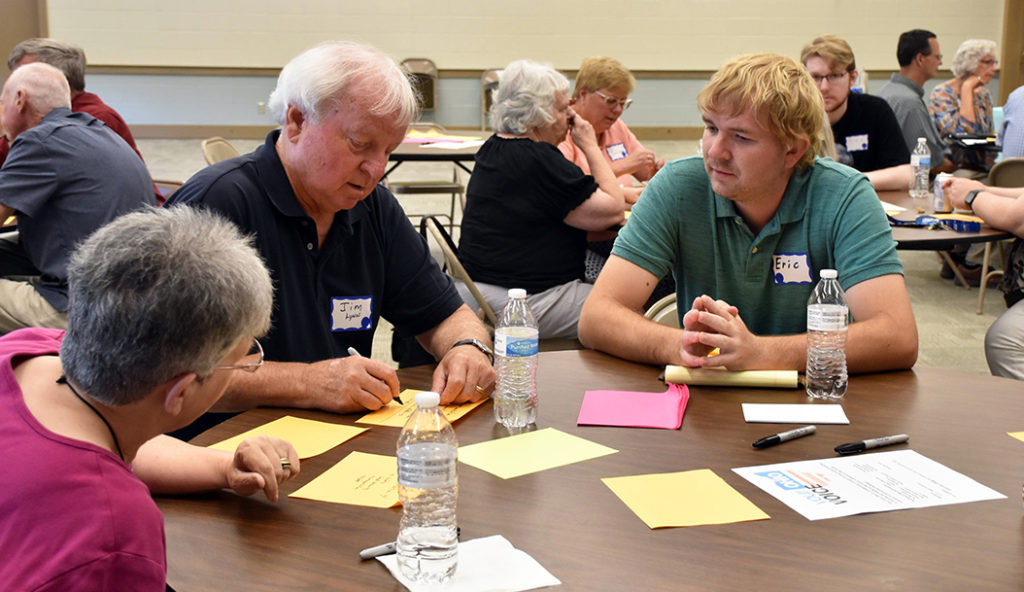Relationships, acceptance of differences, and acknowledgment of problems were among the things Green residents said they wanted to address to help make the city a place where everyone can live happy, fulfilled lives.
Thirty-nine people showed up on a sunny June Sunday for the first of three pre-election community conversations sponsored by the Your Voice Ohio media project, which is listening to people across the state discuss how they envision better places to live – and how to get there.
Unlike most Your Voice Ohio events, which have been in urban and rural settings from Dayton to Youngstown, the conversation in Green was in a mostly white community with levels of college education and household income significantly higher than other parts of the state.
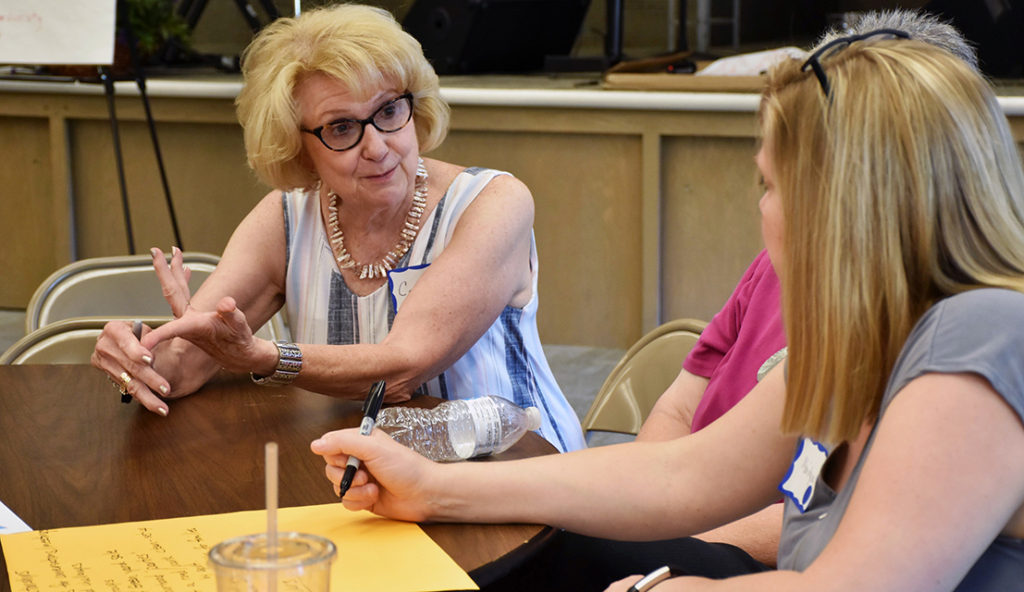
A theme has emerged across the 28 meetings from more than 1,000 people who have participated in conversations about addiction, the economy and now local elections: Ohioans crave for relationships, respect and dignity.
The pre-election conversations began in Akron with four sessions around the city. In an area where income and education trail most surrounding communities, people identified relationships as critical to creating a happy community.
In Green, that was the top issue as well – perhaps.
Also ranking high and drawing the largest audience for creative problem-solving during the two-hour session was a concern that the city is unable to acknowledge it has problems, among them hungry children, poverty, addiction and attitude issues regarding socioeconomic class.
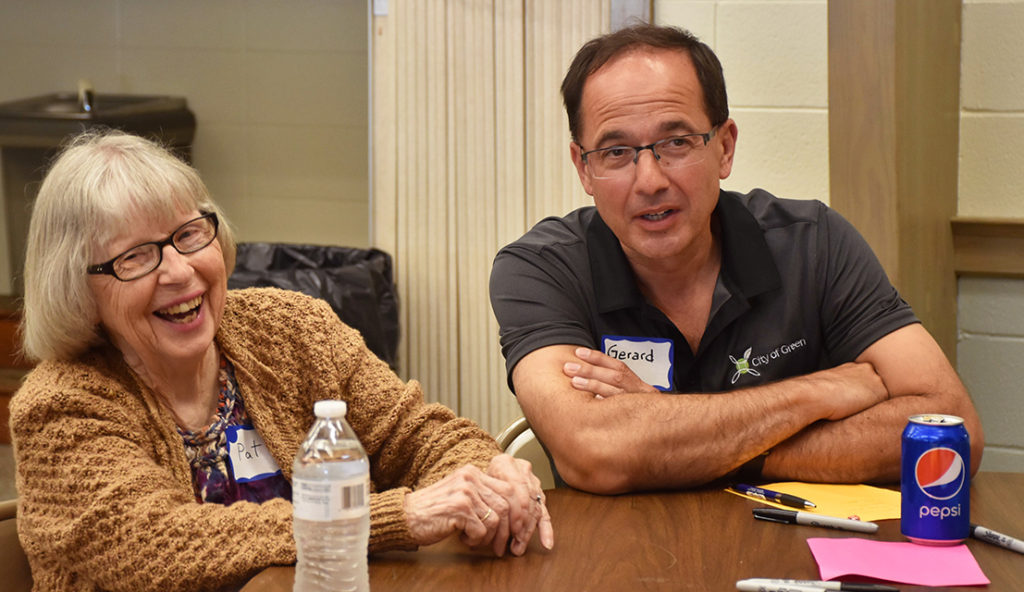
Solutions to both – building relationships and acknowledging problems – included more community conversations, city and neighborhood parties, focus groups and courage to have frank conversation about problems coupled with examples of how those problems have been addressed successfully. Those conversations occurred within a context of residents recognizing that Green has high levels of income and education and meanwhile experiences uncomfortable conflict at both the local level and reflective of national politics.
What didn’t emerge as a key concern in Green but was heard in most other urban areas was the need for jobs with living wages. Instead, residents expressed concern that too many young people pursue expensive college education when there is a need for skilled trades. An alternative, some suggested, though, was free college.
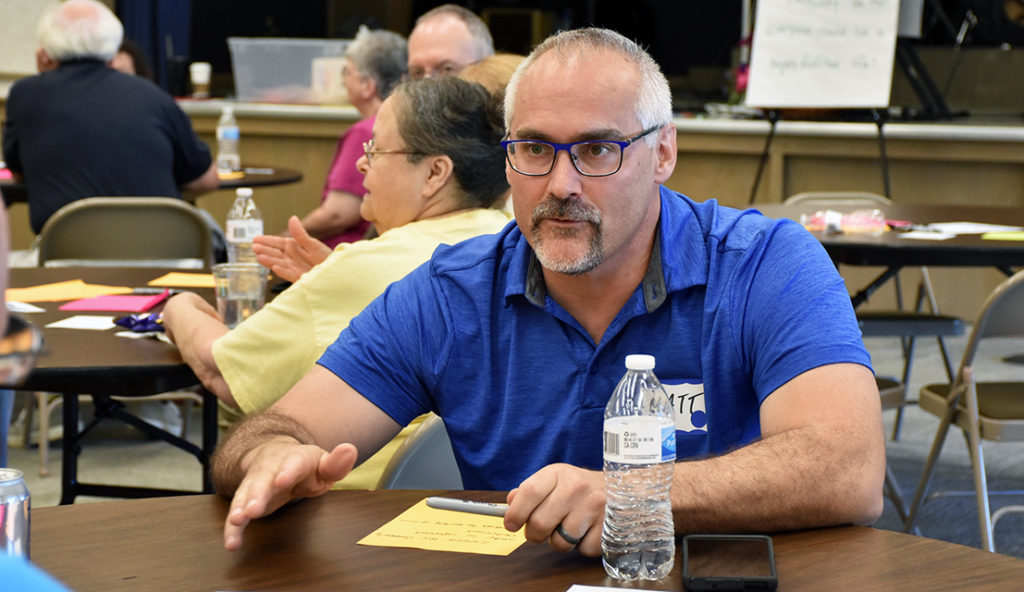
We’re continuing the conversation in Green with two follow-up events in July and August. The second session will again explore how Green can become a community where all people can live happy and fulfilled lives. The topic for the third will be determined after the second session. The sessions will all be held at Greensburg United Methodist Church, 2161 Greensburg Road. RSVP on our events page.
These will be used to shape local issue coverage ahead of the 2019 local and 2020 national elections, giving the community a voice in the democratic process.
